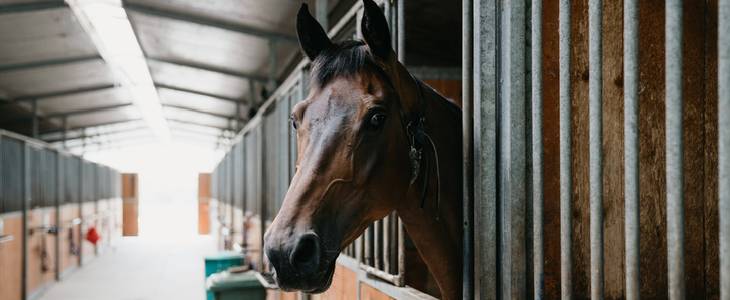A new horse is a major—and expensive—investment. Therefore, before purchasing a horse, it’s imperative to obtain a full horse purchase inspection, which is also commonly called a pre-purchase exam. Not only does a horse purchase exam help ensure that the buyer is receiving a healthy, sound horse, but it also protects the seller should the transaction lead to a legal dispute. In this article, we discuss horse purchase inspections.
What is a Horse Purchase Inspection?
A horse purchase inspection is an assessment of a horse’s overall health and soundness at the time of the inspection. Rather than assigning a horse with a passing or failing grade, veterinarians who conduct such inspections evaluate the risk that is associated with the purchase for the horse’s intended use.
The Purpose of a Horse Purchase Inspection
A horse purchase inspection minimizes risk and provides the buyer with reasonable certainty that he or she is buying a healthy horse that is capable of performing its job. One of the key purposes of a horse purchase inspection is uncovering issues with the animal that may not be readily apparent. Unfortunately, some sellers take steps to mask or hide issues, and these can often be discovered during a horse purchase inspection. In addition, an inspection can establish a baseline for the animal’s health.
When to Get a Horse Purchase Inspection
You should only order a horse purchase inspection when you are ready to buy a specific horse. In other words, you should go see the horse in person and agree on a price with the owner before you order an inspection. It is useful to think of a horse purchase inspection like a home inspection. With a home purchase, you choose a house you want to buy, make an offer, and complete the transaction contingent on a clean home inspection. This same process applies to buying a horse—you reach an agreement with the owner of the horse contingent on a successful horse purchase inspection.
What Does a Horse Inspection Cover?
A horse inspection typically covers multiple aspects of a horse’s health, including:
- The horse’s previous medical records;
- A health check, including examinations of the eyes, teeth, skin, heart, lungs, mouth, and temperature;
- A physical exam, including an examination of the hooves and checking for lumps, heat, and inflammation;
- A neurologic exam, which checks coordination, response to stimuli, balance, and reflexes;
- A movement assessment, including a check of all three gaits on both soft and hard surfaces, under saddle and in hand, and in circles and straight lines; and
- X-rays of the horse’s neck, back, and joints.
Contact a Wellington Equine Law Lawyer
Whether you are a horse buyer or seller, Gueronniere, P.A., can help you with your equine transactional needs. At Gueronniere, P.A., our experienced equine law lawyer has the knowledge and experience necessary to ensure that your equine transaction is successful. Please contact us today to schedule a consultation with our talented Florida lawyer.

